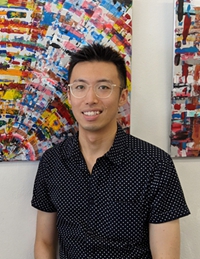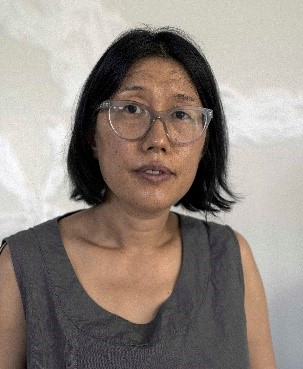The Chey Fellowship
The Institute for Australian and Asian Arts and Culture at Western Sydney University is located at the Parramatta South campus. Australia is home to more than one million people of Chinese descent with a wide range of identities, life histories, views and places of origin. We believe that arts and culture are essential to the well-being, cohesion and vitality of our culturally and linguistically diverse communities. The Institute is positioning itself as a hub to promote and enhance arts and cultural exchanges between Australia and mainland China, Taiwan, Hong Kong and the wider Sinosphere. Located in one of the of the most ethnically diverse urban centres of Australia, IAC also plays an important role locally in contributing to a vibrant multicultural urban society through its community engagement in developing educational and inclusive arts and cultural programs. The Institute will enable the development of richer arts and cultural knowledge and deeper connections through an open, intellectual and dynamic engagement with centuries-old and emerging Chinese arts and culture in an Australian context.
The IAC is delighted to have established the Chey Fellowship, named in honour of the founding director of IAC, Professor Jocelyn Chey AM, and her late husband, Moon Lin Chey. The goal of the Chey Fellowship is to support the arts by fostering collaboration between an artist and IAC. Prospective applicants of the Chey Fellowship are by invitation and the applications will be approved by the Chey Fellowship panel. The Fellowship will provide a lump sum contribution for the creation of new artworks for an exhibition at the IAC gallery to support the exhibiting artist in their artistic exploration. The recipient of the Fellowship will have shown outstanding creative ability in their chosen medium and demonstrated a commitment to enhancing and furthering their creative practice. The financial award will allow the artist to explore new ideas for an inspired body of work that will be shown in the IAC gallery for a minimum of two months. The exhibition may also include existing works.
Panel
Chair - Professor Jocelyn Chey AM | |
Professor Jocelyn Chey AM is Visiting Professor at the University of Sydney, and Adjunct Professor in the Institute for Chinese Arts and Culture, Western Sydney University and the Australia-China Relations Institute, University of Technology Sydney. She is also a Fellow of the Institute of International Affairs. Professor Chey has held many distinguished diplomatic appointments including the first Cultural Counsellor in the Australia Embassy in Beijing (1975-1978); the first Executive Director of the Australia-China Council (1979-1984), Senior Trade Commissioner in the Australian Embassy in Beijing (1985-1988), Director of the China Branch of the International Wool Secretariat (1988-1992) and Consul-General for Australia in Hong Kong and Macau (1992-1995). In 2008, she was awarded an Australia-China Council Medal for contributions to the development of relations between Australia and China. In 2009 she was honoured with the Medal of Australia (AM) in recognition of her community service and contribution to the development of relations with China. Jocelyn was the Founding Director of the Institute for Chinese Arts and Culture, Western Sydney University 2016-17. Professor Chey’s current research fields include cultural diplomacy with relevance to China, Taiwan and Hong Kong, and the cultural aspects of Chinese humour. She has co-authored and co-edited two books on the latter subject and published widely on cultural diplomacy and Chinese international relations. Professor Chey is a frequent speaker and lecturer on Chinese arts, culture and political affairs. | 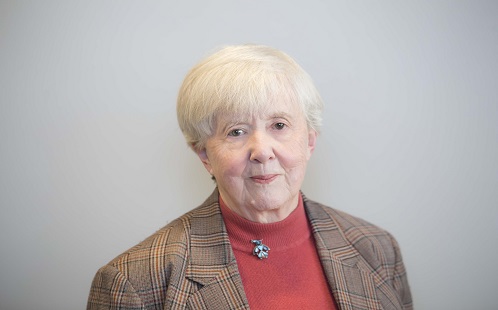 |
Members
Yin CaoYin Cao has been the Curator of Chinese Art at AGNSW since August 2011. Prior to that she was the Deputy Director at the Arthur M. Sackler Museum of Art and Archaeology at Peking University, Beijing, China, and taught museology at Peking University. Before moving to Australia, she was a researcher at the University Museum of the National University of Singapore as well as working as an art professional in Japan. Trained as an archaeologist at Peking University and Harvard University, Yin has participated in several archaeological excavations both in China and Israel. She received museum management training at the Smithsonian Institution and the Freer/Sackler Gallery in Washington, DC. She has curated numerous exhibitions both in China, Singapore and Australia, including: the inaugural exhibition at the Arthur M. Sackler Museum of Art and Archaeology at Peking University (1993); “A Silk Road Saga: the sarcophagus of Yu Hong” (2013), “Tang: treasures from the Silk Road capital”(2016), “Heaven and Earth in Chinese art: treasures from the National Palace Museum, Taipei” (2019), and “The Way We Eat” (2021). For all these exhibitions Yin wrote and edited the catalogues. She is on the Board of the Museum of Chinese in Australia, and a member of the Advisory Board for the National Foundation for Australia-China Relations. | 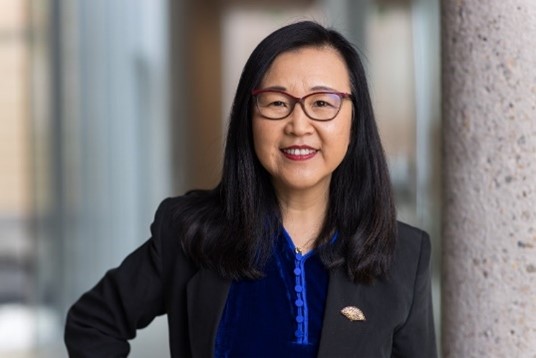 |
Dr Guan WeiDr Guan Wei was born in Beijing in 1957 and graduated from the Department of Fine Arts at Beijing Capital University in 1986. He first came to Australia in 1989, and from 1989 to1992 he completed art residencies at the University of Tasmania and the Australian National University. During this period, he was also the first artist-in-residence from China at the Museum of Contemporary Art in Sydney (MCA). In 1993 Guan Wei immigrated to Australia and in 2008 he set up a studio in Beijing. Prior to the pandemic he lived and worked in both Beijing and Sydney and over the years has made significant contributions to the art exchanges between Australia and China. Guan Wei has held over 70 solo exhibitions in Australia and internationally, including Nesting, or Art of Idleness at MCA in 1999; Other Histories: Guan Wei's Fable for a Contemporary World at the Powerhouse Museum, Sydney in 2006; and Guan Wei: MCA Collection in 2019 which included his major works the Two-finger Exercises series from 1989 and the mural Feng Shui commissioned for the Bureau of Meteorology in Melbourne. Guan Wei has been included in many important international contemporary exhibitions, such as the Shanghai Biennial, China; the 10th Havana Biennial, Cuba; the Adelaide Biennial of Australian Art, Australia; the 3rd Asia Pacific Triennial of Contemporary Art, Australia; the Osaka Triennial, Japan; and the Gwangju Biennial, South Korea. His major awards include 2002 Sulman Prize at Art Gallery of NSW and 2015 Arthur Guy Memorial Prize. In recognition of his tremendous contribution to Australian and Chinese contemporary art, Guan Wei was awarded an Honorary Doctorate in Creative Art from Western Sydney University in 2021. Guan Wei is an iconic figure in the Australian contemporary art scene and critically acclaimed internationally. His art is highly praised not only for its intellectual depth, artistic originality, humanity, and integration of past, present, East and West, but also for its sharp sense of humour and, above all, its unique Guan Wei style. Through his art he reflects upon the human condition as we engage with critical contemporary issues, such as climate change, questions of identity, migration and exile. His works are equally the product of his rich cultural repertory of symbols as they are of his informed socio-political awareness and knowledge of art history. |  |
Professor Jing HanProfessor Jing Han is a leading expert in translating Chinese culture, intercultural communication, audiovisual translation and media accessibility. She is highly regarded for her significant and original contributions to the field and industry. Jing is also known for intercultural competence, strong leadership and innovative thinking. Jing received her PhD in English literature from the University of Sydney in 1995. In 1996 she joined the public broadcaster SBS TV Australia as Mandarin subtitler. Since 2006 she has been the Chief Subtitler and Head of the SBS Subtitling Department, leading the Department to a great international success and fame. Over the last 23 years, Jing has subtitled over 300 Chinese films and documentaries including Crouching Tiger, Hidden Dragon, Lust, Caution, Wedding Banquet, Hero, Under the Hawthorn Tree, Not One Less, Ash Is the Purest White, I Am Not Madam Bovary, Let the Bullet Fly, Sacrifice, The Blue Kite, Crazy Stone, Shanghai Dream, A World without Thieves, Springtime in a Small Town, Beijing Bicyle etc. In the last six years, Jing has been the leading subtitler of the most popular Chinese TV show If You Are the One. Her critically acclaimed English subtitles have played a key role in creating a cult following in Australian audiences and setting the record of the longest showing non-English series in Australian broadcasting history. The show’s cultural impact and influence on Australian audiences is also unprecedented. So far Jing has subtitled over 400 episodes of the show as well as other Chinese TV series. Jing has been frequently invited to speak at conferences and has delivered lectures at over 30 universities across the world. In recognition of her outstanding contributions to the cultural exchange between Australia and China, she was included in the 45 Stories published by the Australian government. She is the executive producer of the English edition of 100-episode documentary series A History of China commissioned by CGTV China. Jing joined Western Sydney University in 2006 and has been a key faculty member in its flagship program, Translation & Interpreting, in the School of Humanities and Communication Art. She has designed and taught a range of translation and interpreting courses including Audiovisual Translation and Literary Translation for postgraduates. She is a PhD supervisor, supervising PhD candidates in a range of research areas including translation and interpreting studies, multimodality and media studies, Chinese culture and literature translation, Traditional Chinese Medicine (TCM) translation and intercultural communication. Jing has been Associate Dean for International at School of Humanities and Communication Arts and played a pivotal role in establishing partnerships with many universities in mainland China, Taiwan and Europe. Jing is the English translator of a modern Chinese classic Educated Youth by multi-award winning author Ye Xin, published by Giramondo in 2016. She is also a highly accomplished professional interpreter for live interpreting at significant cultural and literary events. | 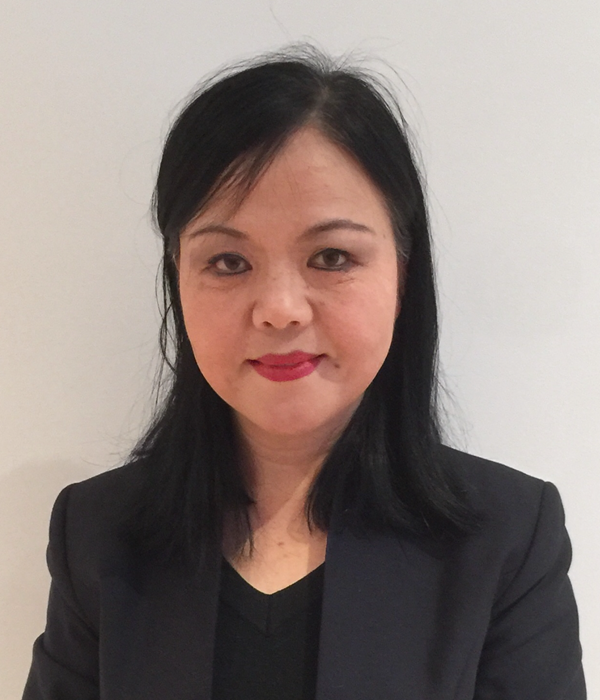 |
Recipients
Owen LeongOwen Leong is a multidisciplinary visual artist exploring counternarratives of queer world-making. His work navigates the body as a site of individual experience and a product of social and cultural forces. He uses personal mythologies and kink aesthetics to explore power, control, and care, to reframe and reimagine identities and intimacies. His work centres queer pleasure as an act of political agency and healing. At the heart of Leong’s practice is a belief in the power of art to transform the way we see ourselves and others. Leong has exhibited widely in Australia and internationally including the Art Gallery of New South Wales; Art Gallery of South Australia; Queensland Art Gallery; Newcastle Art Gallery; Monash Gallery of Art; 4A Centre for Contemporary Asian Art; Singapore Art Museum; Today Art Museum, Beijing; Zendai Museum of Modern Art, Shanghai; OCT Contemporary Art Terminal, Shenzhen; and the National Museum of Poznan, Poland. In 2024, Leong received The Chey Fellowship and will present a major solo exhibition at the Institute for Australian and Chinese Arts & Culture at Western Sydney University. He is currently undertaking a two-year studio residency at Parramatta Artists’ Studios. In 2017, Leong was a finalist in the Ramsay Art Prize, Australia's premiere prize for young contemporary artists. In 2016, Leong received the MAMA National Photography Prize and in 2015, he won the Josephine Ulrick and Win Schubert Photography Award. Leong has been awarded numerous grants from Creative Australia, Create NSW, Ian Potter Cultural Trust, and Asialink. He has held artist residencies at Artspace, Sydney; Centre for Contemporary Chinese Art, Manchester; Cité Internationale des Arts, Paris; Tokyo Wonder Site, Japan; Swatch Art Peace Hotel, Shanghai; and Hong Kong Arts Centre, Hong Kong. His work is held in the public collections of Creative Australia, Bathurst Regional Art Gallery, Bendigo Art Gallery, Detached Cultural Organisation, Gold Coast City Gallery, Murray Art Museum Albury, Newcastle Art Gallery, University of Salford Art Collection UK, and private collections in Australia and internationally. | 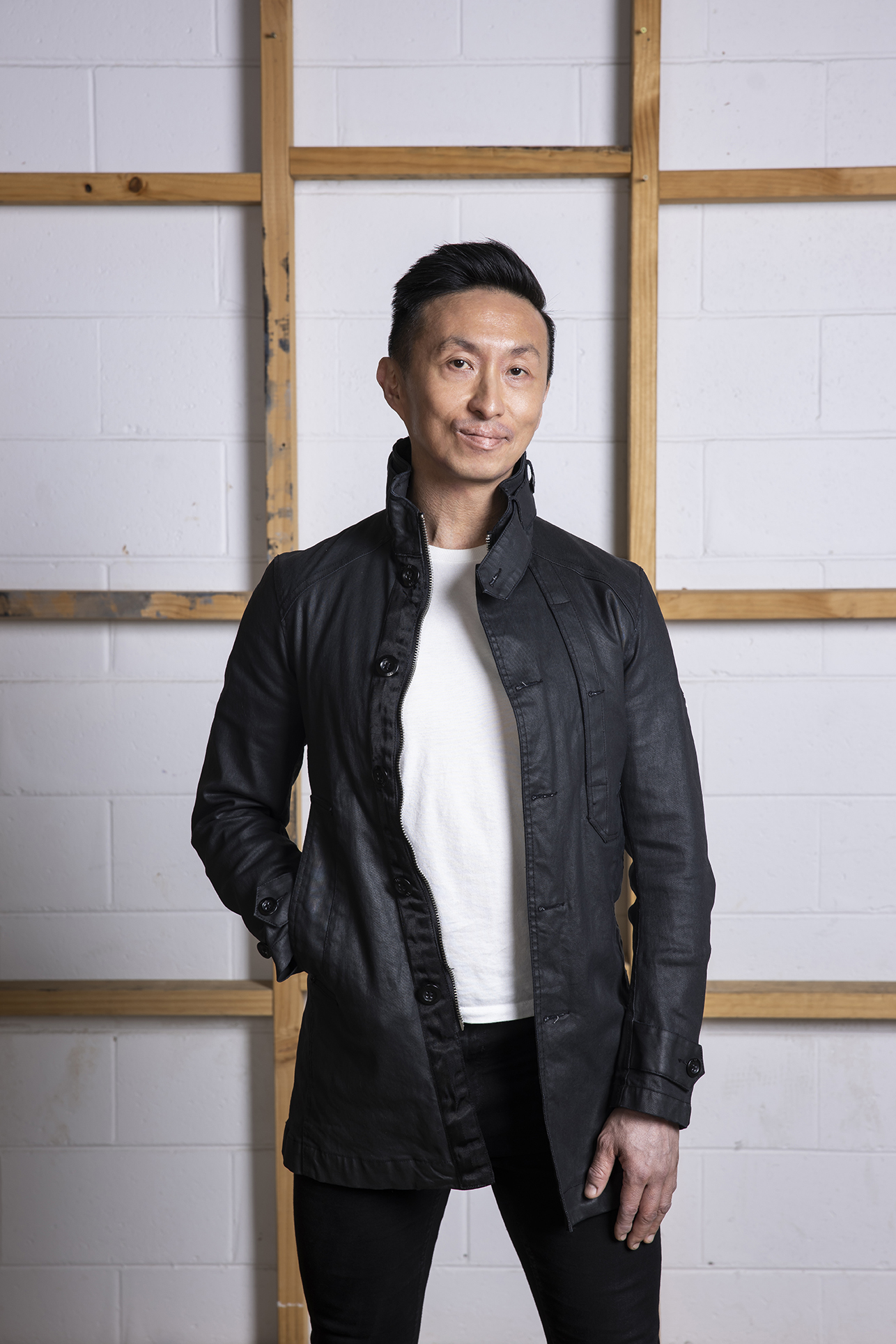 |
Nelson NgheNelson Nghe is a Western Sydney-based artist engaging with a diverse range of mediums including painting, photo media and assemblage. Nelson’s practice is characterised by the passionate use of mixed media and playful abstractions to push boundaries and highlight intersectional narratives as a first-generation Australian Chinese growing up queer within a culturally and linguistically diverse background in western Sydney. Nelson graduated with a Bachelor of Commerce and Diploma of Fashion Design and interweaves these backgrounds onto his current art practice to understand the intergenerational impacts of his Chinese diaspora. In 2013, as a freshly graduated designer, he was announced Peroni & Harpers Bazaar Young Designer of the Year. In February 2023 he had his debut solo exhibition Playtime which was presented as part of Sydney World Pride that year. Nelson has been a finalist in several major art awards, including the Fisher’s Ghost Art Award, Hornsby Art Prize and Blacktown City Art Prize. In 2023, Nelson won the Blacktown City Art Prize People’s Choice Award. |
|
NC QinNC Qin is an Australian artist and curator who grew up in the 90s in Sydney, graduated from Sydney College of the Arts in 2015 with a Bachelor of Arts degree and continued her study of visual arts across Australia, China and the USA. Qin has become known for working with cast glass, an incredibly time consuming and labour-intensive process. Her work has been collected both nationally and internationally. NC Qin uses her primary medium of glass to prompt conversations on heritage and values. Her work alludes to global epics and philosophies that reflect her interests as a Chinese Australian woman as she explores how myths change the value systems of today. She has exhibited in spaces such as Arts House Melbourne, Bankstown Art Centre, Griffith Regional Gallery, Fisher Library, Rookwood Cemetery’s HIDDEN walk, 541 Art Space and Gosford Regional Gallery. Her series “Head Case” was exhibited at and collected by the National Museum of Art as the winner of the Emerging Art Glass Prize 2020, as well as the Ashmolean Museum of Art and Architecture (Oxford, UK) as a finalist of IDENTITY 2019: an art and design prize. In 2021, Qin was commissioned by Gallery Lane Cove with a solo exhibition as part of the Lunar North Confluence, a program that connected Art Space on the Concourse, Incinerator Art Space and Macquarie University Gallery. Her work Portal went on to win the Vicki Torr Prize 2021. In 2022, she went on to be a finalist of numerous art prizes and was featured in a micro documentary by EST media. In 2023, she completed a public art sculpture for Chatswood's Inner Edge Drifting exhibition as well as performed Glass Armour in Melbourne's Arts House as part of the Okkoota exhibition. In 2024 Qin collaborated with director Will Suen to film the Glass Armour Performance which debuted at Casula Powerhouse for the exhibition FROM FIRE. This performance revolves around a durational performance in which the artist wears a suit of glass armour weighing 80kgs until muscular failure. The armour, created through a painstaking glass process, is overflowing with Chinese history, symbolism, narrative and cultural values. Qin is represented by Art Atrium, Sydney. | 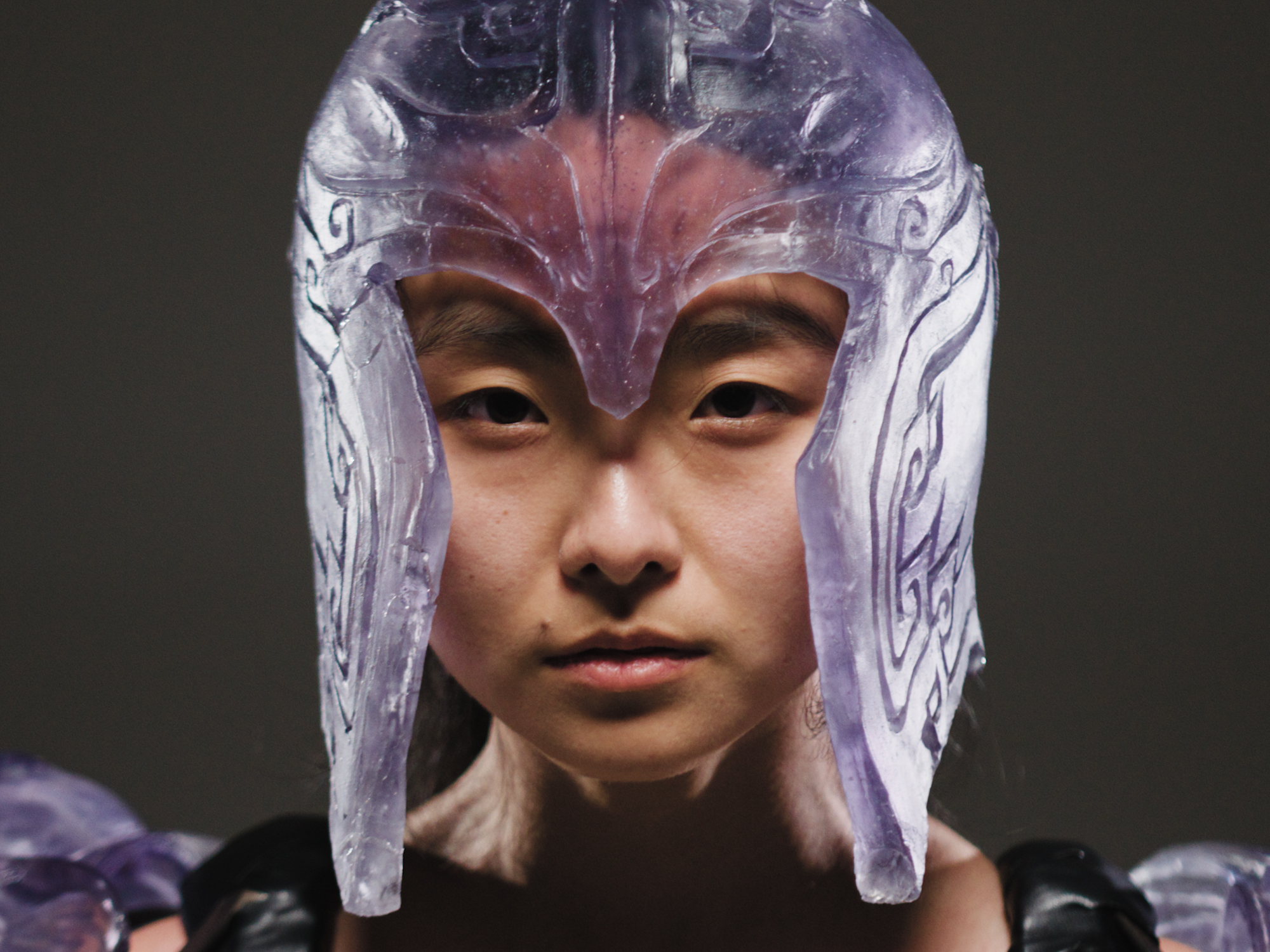 |
Pamela SeeDr Pamela See (Xue Mei-Ling) is an Australian visual artist who practises a contemporary form of papercutting. Her paternal grandfather left China in the early 1930s, and her father, in turn, emigrated from Malaysia in the early 1960s. Born in Brisbane in 1979, Pamela grew up in South East Queensland during the 1980s. Pamela has been exhibiting since the late 1990s in museums and galleries, including the National Gallery of Australia, Arteriet in Norway, the Museo Gustavo de Maeztu in Spain, the Qing Tong Museum in China and the International Studio and Curatorial Program in the US. Her artworks are included in collections housed in The Australian War Memorial in Canberra, The National Gallery of Australia, The National Portrait Gallery of Australia, The Art Gallery of South Australia in Adelaide, the Hua Xia Papercutting Museum in Changsha, Swire Properties in Beijing and Chinachem in Hong Kong. She was invited to contribute to a young and emerging artist program, Starter Space, at the Queensland Art Gallery in the early 2000s. This was proceeded by inclusion in the national touring exhibition Echoes of Home, instigated by the Museum of Brisbane. During this decade, she also developed her skills through residencies in China and the US, funded by the Australia China Council, Australia Council for the Arts and the Brisbane City Council. During the late 2000s her work featured in solo exhibitions in many regional galleries across Australia, including Noosa, Goulburn and Gympie. Her work was also featured in a solo exhibition at the Museum of Chinese and Australian History in Melbourne in 2019 and in a group show So Fine at the National Portrait Gallery and Sydney Lunar Festival in 2018. Her most recent solo exhibition, …By Celestials, was shownat the SOL Gallery in Melbourne in January 2024. Pamela has also created various site-specific installations both across Australia and in New York and Beijing. Her most recent installation, Hopping Under the Same Moon, was created for the CWS Moon Festival at the Chung Wah Temple in Darwin in 2023. Dr Pamela See holds a Bachelor of Visual Arts and a Doctor of Philosophy in Fine Arts from Queensland College of Art, Griffith University, and a Master of Business and a Master of Education from Queensland University of Technology. Investigating the impact of migration on the Australian cultural landscape has been a primary focus of her work. |
|
